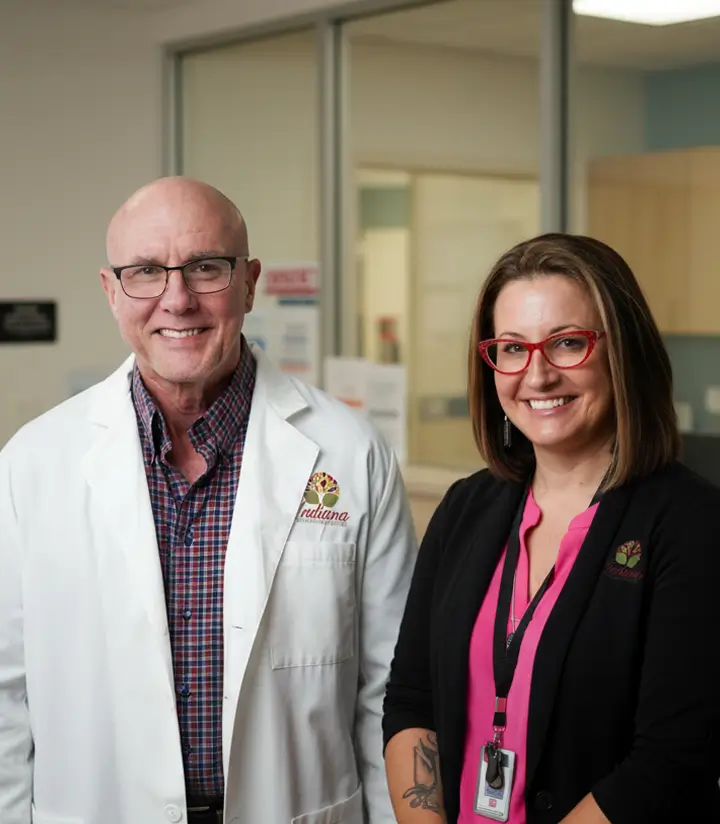Opioid Withdrawal Journey
Indiana Center for Recovery explains the different stages of the opioid withdrawal journey.
Opioids kill more Americans than any other drug. Opioid Use Disorder affects 5.5 million people across the U.S. ⓘ and in Indiana, nearly 2,200 people died from drug overdoses in 2023, driven largely by fentanyl. ⓘ
But, opioid use disorder (OUD) is treatable!
Opioids are drugs that relieve pain by binding to receptors in the nervous system. In addition to blocking pain, they trigger the brain’s reward system, producing intense feelings of euphoria.
Over time, repeated opioid use can alter the brain’s chemistry, leading to Opioid Use Disorder (OUD) — a medical condition where the body and brain become dependent on opioids to feel normal and function.
Common opioids include:
Prolonged opioid use disrupts the brain’s natural balance of dopamine and stress hormones. When the drug is suddenly removed, the body goes into a state of chemical imbalance, triggering intense physical discomfort and psychological distress, including:
The body has intense cravings for opioids to stop this extreme sickness.
Overdose Lifeline’s map shows NaloxBox kiosks, vending machines, and distribution sites across Indiana. Naloxone (Narcan) is a fast-acting medication that reverses opioid overdoses and restores breathing.
Our medically reviewed articles explain the science behind opioid use disorder, break down treatment options like MAT and detox, and offer real-world strategies for harm reduction, family support, and long-term recovery.
Indiana Center for Recovery explains the different stages of the opioid withdrawal journey.
Synthetic opioids are a medical marvel, but they can be deadly. Indiana Center for Recovery explains here.
What is Fentanyl? a synthetic opioid used to treat severe pain that can quickly become addictive. Separate fact from fiction on opioid use.
Indiana Center for Recovery explains the opioid crisis in Indiana, including prevention, treatment, and recovery aid.
Indiana has seen one of the highest increases in the number of children placed in foster homes since the start of the epidemic. Learn more here.
Learn how to detox from opiates with the treatment experts at Indiana Center for Recovery.
Indiana Center for Recovery provides integrated care tailored to your recovery needs. Our comprehensive services include detox, residential programs, outpatient support, and family programs.
We also have dual diagnosis treatment for individuals with co-occurring mental health disorders.

Error: Contact form not found.

 Get Answers Now
Get Answers NowYou don’t have to figure this out alone. We can guide you through your options—completely confidential and with zero commitment.
100% Private